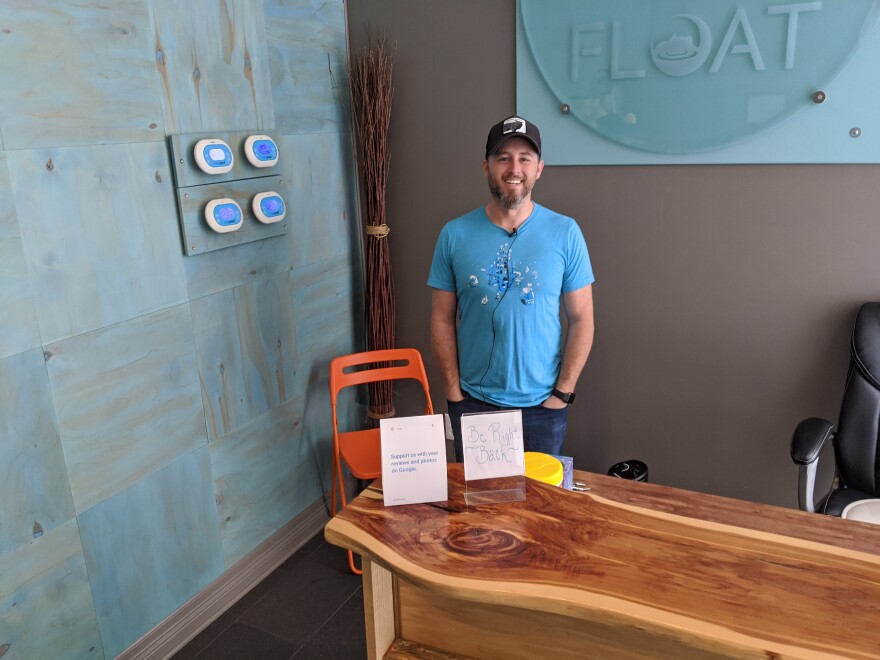Before the current pandemic, each day 30 or so people would show up to the business Float in Balcones Heights.
They’d come in, strip down, get a 15-minute massage and then ease into one of the many sensory-deprivation tanks. They float in warm epsom-salt filled water that executive director Jeremy Jacob hopes melts their worries away.

“The music fades out. You click the lights off and at that point you're removing almost all sensory input, which allows you to go into a really deep-relaxed or meditative state,” said Jacob.
But as anxieties around a global pandemic remain high, these floating pods and cabins are under lock and key.
“We can survive through this even longer term,” Jacob said. “My main focus right now is trying to figure out ways to continue paying our employees through this so we're getting creative with that.”
The federal government is now offering disaster assistance loans in Texas through the Small Business Administration, something Jacob said he would explore.
The announcement came Friday after many businesses experienced slowdowns with the biggest pain being felt by the hospitality industry. The impacts are felt by a wide range of small businesses, like Jacob’s.
After three years, Float has a solid membership program that will keep them afloat. Jacob is optimistic. Still, they are cutting back.

“There will be a trickle down effect because one of the first things that I did to try and trim some of the fat is I cancelled any services, things that weren't 100% necessary.”
For many like Lew Moorman, partner at Scaleworks, it is too soon to tell if it is going to have a lasting impact on his companies.
Scaleworks owns several small technology companies providing services and software to businesses. The most noticeable change is everyone is working from home, and the normally crammed office of 125 had three people in it on Friday, including Moorman.
“I have not gotten any real dramatic examples of, ‘we had some deal and it was done and now it’s not done’,” said Moorman. “The CEOs are feeling fine and if this drags on for months and months, we could have a different conversation.”

One of their companies — Earth Class Mail makes it easier to work remotely, so it’s getting a lot of calls. But Tint, its marketing software product, targets the hospitality industry.
“And we’re working with those customers to pause their work, because they're obviously not in a position where they can run their businesses,” he said.
So in many ways the customer equates to how business is going .
Andrew Trickett co-founded Merge, which sells augmented reality gear. In the past few years they’ve chased the K-12 education market,which means that their biggest customer segment is cancelling classes and things are slowing.
“They’re still purchases that are happening. More and more of them are getting delayed than cancelled outright,” he said.
But he’s confident because Merge and its products don't have to be in the classroom.
Nearly 300 million kids are missing school globally, according to the United Nations. Schools across the world are going to have to deal with this new reality.

“When we kind of come out of the storm, there’s going to be a lot of business opportunities for us because we are able to do that and there are a lot of educational technologies that are not and they are going to have a lot of permanent pain,” said Trickett.
In the short-term, Merge, Scaleworks companies as well as Float are all going to manage.
The question becomes what happens if this lasts months rather than weeks.
Paul Flahive can be reached at paul@tpr.org or on Twitter @paulflahive.


